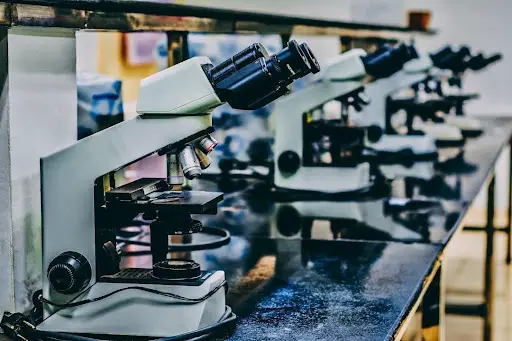Embarking on a college education often comes with the big question, "What can I do after I graduate?" For those pursuing a bachelor's in applied science , this degree opens a plethora of doors across various industries. It merges theoretical knowledge with practical expertise to create a skill set that's in high demand in today's job market. Graduates with a bachelor’s in applied science find themselves well-equipped to tackle challenges and innovate within their chosen fields. Below, we delve into the various opportunities that await these graduates.
Understanding the Interdisciplinary Nature of Applied Science Degrees
This degree stands out for its interdisciplinary nature, bridging gaps between hard science and its practical application. Programs are often tailored to merge subjects like physics and biology with business, ethics, and communication. This creates graduates who are as comfortable in the lab as they are in the boardroom.
Applied science courses tend to emphasize collaborative learning, mimicking the collaborative environments found in many industries today. Through group projects and cross-disciplinary studies, students hone their abilities to work productively with diverse teams, an invaluable skill in almost every career.
Moreover, the curriculum encourages adaptability and continuous learning, given the rapid advancements in technology and science. Handling complex problems, integrating new technologies, and implementing advancements are aspects ingrained in the program, thus graduates are adept at not just understanding change but spearheading it.
Continuing Education: Master’s Programs and Beyond in Applied Science
For some, a bachelor's degree acts as a stepping stone to higher education. Master's programs often enable graduates to specialize in an area of applied science, delving deeper into topics such as environmental management , biotechnology, or applied physics. These advanced degrees can further enhance one’s credentials and specialized skills.
Often combined with practical experiences in laboratories and industry projects, master’s programs provide an avenue for more focused research and expert knowledge. Graduates with a master’s degree frequently secure positions of higher responsibility and, typically, better pay.
Doctoral programs are also a route some applied science graduates take, contributing to cutting-edge research, teaching at the collegiate level, or leading R&D departments within corporations. The commitment to a doctorate signifies a dedication to specialization, with the rewards being both professional prestige and the opportunity to push the boundaries of applied science.
Real-World Applications: Industries and Roles Suited for Applied Science Graduates
Understanding where a degree can lead is critical when planning for the future. Industries such as renewable energy and environmental conservation are in dire need of applied science expertise. Graduates may find themselves pioneering sustainable technologies or managing complex environmental projects that require an in-depth knowledge of both science and its real-world applications.
In sectors like aerospace and automotive, applied science graduates contribute to the development of new materials, manufacturing techniques, and system efficiencies. These industries value employees who can bring fresh, data-driven innovations to old challenges, ensuring the products' longevity and sustainability .
Moreover, government agencies and non-profit organizations increasingly rely on individuals with this expertise to inform policy-making, regulate industries, and lead scientific initiatives. These roles often entail a combination of scientific knowledge, project management, and community engagement.
Leveraging Applied Science Degrees in Entrepreneurship and Start-Ups
Entrepreneurial ventures present an exciting frontier for applied science graduates. By combining their technical knowledge with business acumen, they can launch start-ups that address niche markets or respond to societal challenges with innovative products or services. The versatility of their skill set makes entrepreneurs out of applied scientists, ready to transform industries from the inside out.
In the dynamic start-up ecosystem, these graduates often bring the crucial technical expertise that is necessary to create a viable product or service. Their ability to solve complex problems and develop scalable solutions is key to the success of any new business venture in the tech sector.
Overall, a bachelor's in applied science degree serves as a versatile foundation for a multitude of career paths. It prepares graduates for specialized technical roles, leadership positions, and entrepreneurial ventures by fusing science and technology with practical application across industries. As technology evolves and the world's needs become more complex, the skills earned with this degree will remain an invaluable asset in the workforce.











